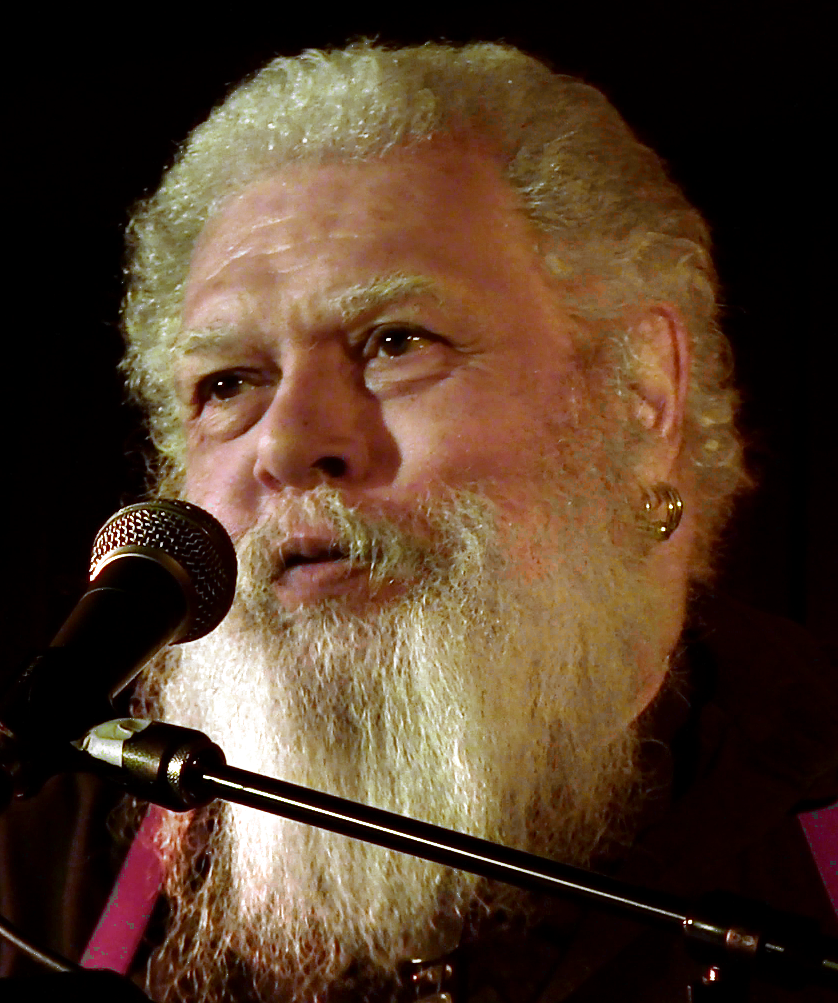“But it's always intriguing to discover the ways in which desire fuels the systems of the world.”
Źródło: The Mad Man (1994), p. 257
Samuel Ray Delany Jr. – amerykański pisarz science fiction i krytyk literacki. Laureat nagród Nebula i Hugo.
Dorastał w Harlemie w dobrze sytuowanej rodzinie afroamerykańskiej. Jego matka była bibliotekarką, a ojciec przedsiębiorcą pogrzebowym. Uczęszczał do Bronx High School of Science. Mimo iż publicznie przyznaje się do bycia gejem, przez 19 lat był żonaty z poetką Marilyn Hacker i ma córkę Ivę Hacker-Delany.
Od 1988 r. Delany zajmował stanowisko profesora literatury na kilku uniwersytetach, m.in. University of Massachusetts at Amherst, University at Buffalo, a ostatnio na Temple University w Filadelfii. Jest autorem książek z dziedziny literaturoznawstwa.
Debiutował jako pisarz w wieku 20 lat, powieścią The Jewels of Aptor. Uważany jest za czołowego twórcę Nowej Fali SF. Jego utwory charakteryzują się złożonością i wyrafinowaniem.
Oprócz powieści uznanie zdobyły także krótkie formy, np. opowiadania Aye, and Gomorrah i Time Considered as a Helix of Semi-precious Stones .
Jest dyslektykiem.
Wikipedia

“But it's always intriguing to discover the ways in which desire fuels the systems of the world.”
Źródło: The Mad Man (1994), p. 257
Źródło: Tales of Nevèrÿon (1979), Chapter 2, “The Tale of Old Venn” Section 1 (p. 76)
“To write for others,’ she thought, ‘it seems one must be a spy—or a teller of tales.”
Źródło: Neveryóna (1983), Chapter 11, “Of Family Gatherings, Grammatology, More Models, and More Mysteries” (p. 313)
“You can be bored with anything if you try hard enough.”
Źródło: Nova (1968), Chapter 3 (p. 36)
Źródło: Neveryóna (1983), Chapter 7, “Of Commerce, Capital, Myths, and Missions” (p. 147)
“Everyone in a position of authority is hysterical, and everyone else is pretending to be asleep.”
Źródło: Triton (1976), Chapter 3 “Avoiding Kangaroos” (p. 54)
“Imagination should be used for something other than pondering murder, don’t you think?”
Part 2, Chapter 4
Babel-17 (1966)
Źródło: Tales of Nevèrÿon (1979), Chapter 3, “The Tale of Small Sarg” Section 3 (p. 140)
Źródło: Neveryóna (1983), Chapter 12, “Of Models, Monsters, Night, and the Numinous” (p. 367)
Źródło: Neveryóna (1983), Chapter 5, “Of Matrons, Mornings, Motives, and Machinations” (p. 104)
Źródło: Tales of Nevèrÿon (1979), Chapter 1, “The Tale of Gorgik” Section 2 (p. 15)
Section 9 (quoted from Ortega y Gasset, “On Love”)
The Einstein Intersection (1967)
Źródło: Triton (1976), Chapter 7 “Tiresias Descending, or Trouble on Triton” (p. 322)
Spoken Arts interview on WBFO 88.7, 20th April 2000.
“I came no nearer sleep than I came to the moon.”
Źródło: The Jewels of Aptor (1962), Chapter III (p. 29)
Źródło: The Jewels of Aptor (1962), Chapter IX (p. 108)
Źródło: Tales of Nevèrÿon (1979), Chapter 4, “The Tale of Potters and Dragons” Section 1 (p. 161)
On the Unspeakable, Avant-Pop http://en.wikipedia.org/wiki/Avant-Pop:_Fiction_for_a_Daydream_Nation, p. 150
Ernest Newboy in Part IV, "In Time of Plague" (p. 357)
Dhalgren (1975)